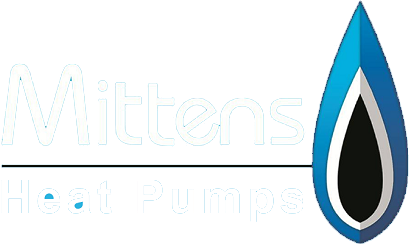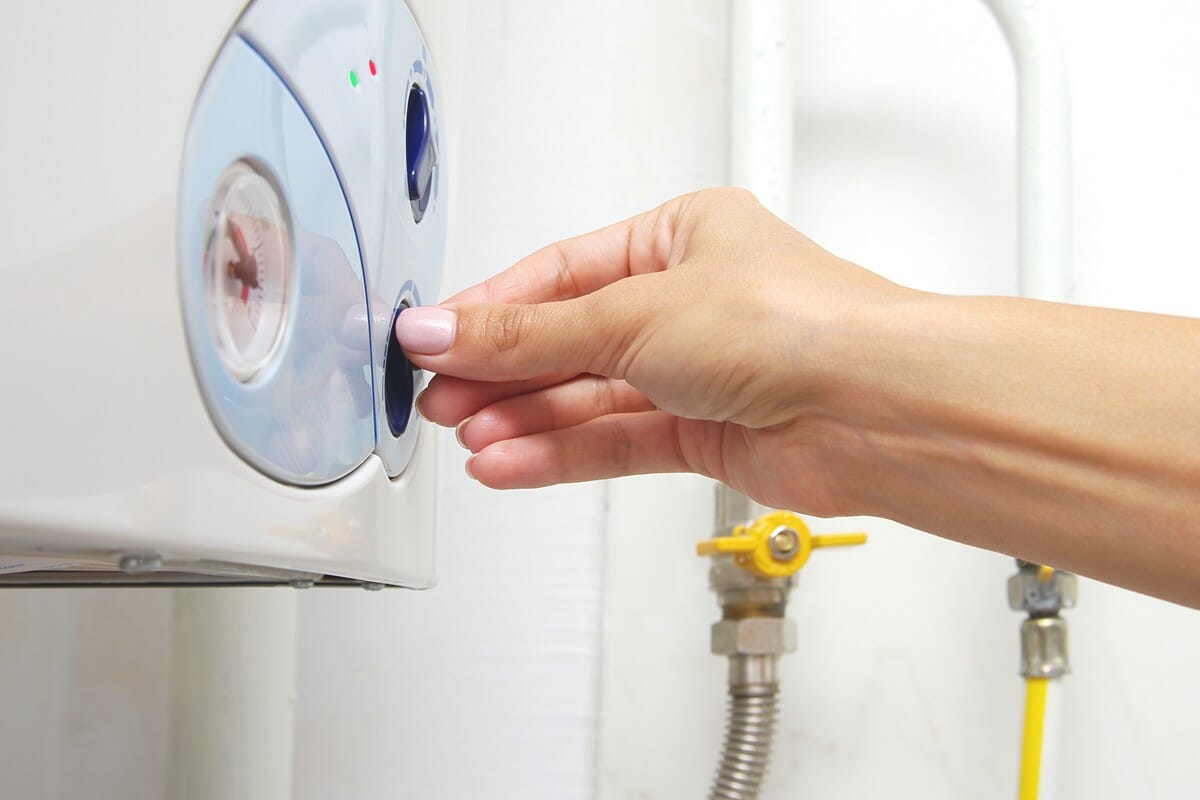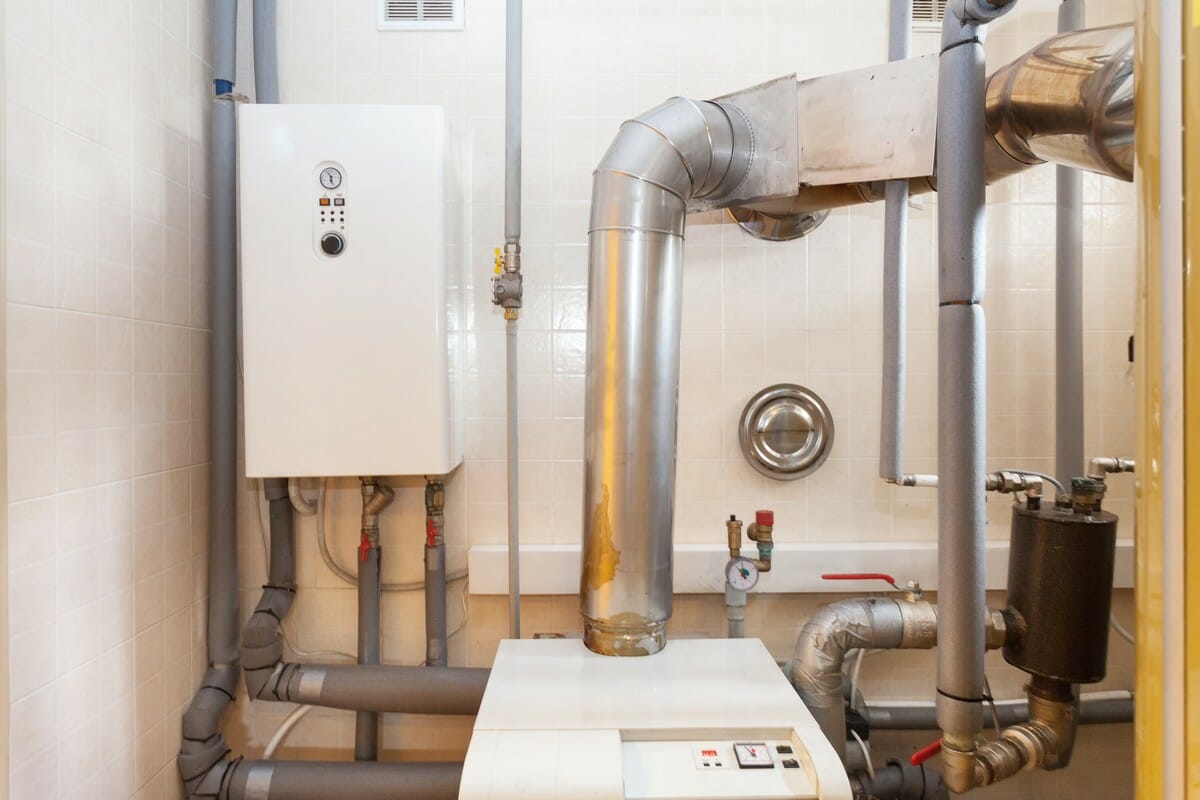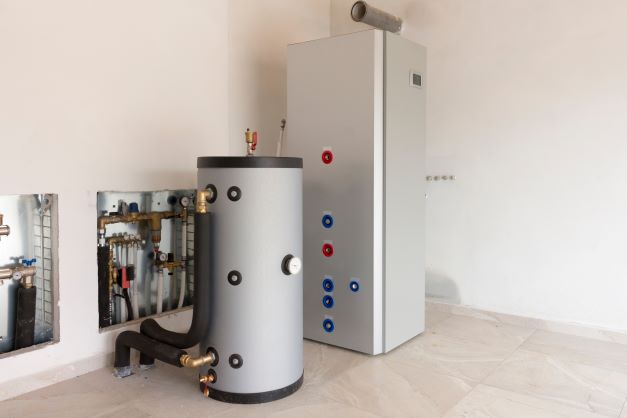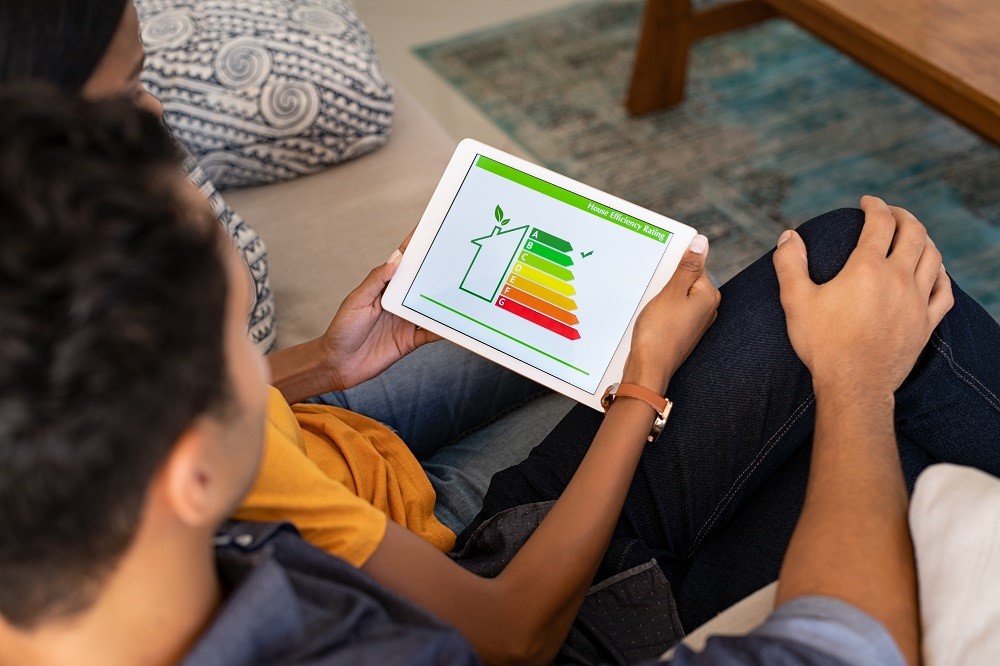Table of Contents
- 1 - How will the boiler upgrade scheme work?
- 1.1 - What technologies are covered by the boiler upgrade scheme?
- 1.2 - Which systems are not covered?
- 1.3 - Who is eligible for the boiler upgrade scheme grant?
- 1.4 - Who is not eligible for the scheme?
- 1.5 - How do I qualify for the Boiler Upgrade Scheme?
- 1.6 - How much funding is available?
- 1.7 - When does the scheme open?
- 1.8 - What other funding is available?
- 1.9 - How will I know which low-carbon heating system is right for my property?
- 1.10 - How can I take advantage of the Boiler Upgrade Scheme with Mittens Heat Pump?
The Boiler Upgrade Scheme is a UK government funding initiative that offers to fund the upfront cost of upgrading your existing fossil fuel boiler to a more energy-efficient, low-carbon heating system. The scheme is administered by the Scheme Administrator who is responsible for ensuring that eligible property owners receive the best value for money from the scheme and that the work is completed to a high standard.
How will the boiler upgrade scheme work?
If you’re thinking about installing a heat pump or biomass boiler, you may be able to get additional funding through the Renewable Heat Incentive (RHI) or the Clean Heat Grant. These are separate schemes with different eligibility criteria, so please check with the administrator before applying.
Once your application has been approved, you will receive a grant offer letter outlining how much funding you will receive towards the overall cost of the work. The grant can cover up to 100% of the upfront costs of installing a new heating system, including VAT and delivery charges.
Once you have chosen an installer and had your heating system installed, they will need to commission it and provide you with a commissioning certificate. This certificate must be sent to the administrator within 28 days of the commissioning date.
What technologies are covered by the boiler upgrade scheme?
The scheme covers a range of low carbon heating technologies including ground source heat pumps, air source heat pumps, biomass boilers and renewable heating system. It also offers support for energy efficiency upgrades such as cavity wall insulation and draught-proofing.
Ground source heat pumps
One of the most popular technologies covered by the scheme is the ground source heat pump (GSHP). A ground source heat pump is a type of renewable energy technology that can be used to heat your home using the natural heat from the ground. Compared to conventional heat equipment, they are highly efficient and can save you money.
Water source heat pumps
Water source heat pumps are a technology that can be used to upgrade your boiler. They work by taking heat from a water source, such as a river or lake, and using it to heat your home. This can be done either by directly heating your home with the water source heat pump or by using it to heat a fluid that is then used to heat your home.
Air source heat pumps
An air source heat pump is a device that uses the ambient heat in the air to generate heat for a home or office. The technology has been around for many years, but it has only recently become popular in the UK due to the high cost of energy. Air source heat pumps are becoming an increasingly attractive option for those looking to upgrade their boiler, as they are much more efficient than traditional boilers and can significantly reduce energy bills.
Which systems are not covered?
The UK boiler upgrade scheme grant does not cover hydrogen boilers or hybrid heat pumps. Hydrogen boilers use hydrogen gas to generate heat, while hybrid heat pumps use a combination of electricity and either air or ground source heat to generate heat. This may change in the future, but for now, these systems are not eligible for funding.
Who is eligible for the boiler upgrade scheme grant?
The scheme is open to both private landlords and commercial properties, but only properties with existing fossil fuel systems are eligible for funding. The grant will only cover biomass boilers: in rural properties with no connection to the mains gas grid and with a carbon emissions certificate showing that polluting emissions are kept to a minimum.
To be eligible for the scheme, you own home must have existing fossil fuel boilers and be located in England and Wales. You will also need to have a valid Energy Performance Certificate (EPC) showing that your property has outstanding recommendations for space heating and/or hot water efficiency improvements.
Who is not eligible for the scheme?
The Boiler Upgrade Scheme does not apply to social housing or new build buildings.
Furthermore, the scheme does not allow you to replace existing low-carbon heating systems. Only properties that will completely replace current fossil fuel systems (such as oil, gas, or direct electricity) are eligible for assistance. You can still apply if you’ve received separate funding for energy efficiency upgrades such as insulation, doors or windows.
How do I qualify for the Boiler Upgrade Scheme?
There are a few things that you will need to qualify for the UK Boiler Upgrade Scheme. These includes:
It is essential that you own your property and heat pump
To be eligible for a Boiler Upgrade Scheme voucher, both your home and the heat pump being installed must be owned by a private individual (or couple).
Your heat pump will need to provide all the heat required
The heat pump must be able to provide all of the heating and hot water that the property requires, which means that no boiler or oil-filled system can be present. Localised heat sources, such as plug-in electric heaters or wood-burning stoves, are permitted, but cannot be accounted for in the calculations needed to calculate the heat pump for the property.
Your must be replacing a fossil fuel equipment in an existing home with the new heat pump
If the heat pump is retrofitted into an existing building, it must replace a fossil-fuel-fired heating system, such as a boiler, or a direct electric system, such as night-storage heaters, and cannot replace an older heat pump.
Your heat pump must be eligible for the scheme
To be eligible for the grant funding, the heat pump must be MCS approved and have a COP (coefficient of performance) of at least 2.8. This implies that selecting the best heat pump and system design to efficiently heat your home is crucial.
The property must have an installed capacity of up to 45kWth (kilowatt thermal)
This means that to be eligible, any heat pump you choose to install must run at an output lower than 45kW. The good news is, that most heat pumps run at much lower power rates than this, but your installer will be able to help you pick the best one for your property.
If your home is already built, you will need a current EPC that is less than ten years old
If your project is a retrofit, the property must have a valid EPC that is less than 10 years old and does not suggest cavity wall or loft insulation. This is because the scheme is intended for well-insulated homes that may benefit from a low-temperature heat source, such as a heat pump. With a Heat Pump Suitability Checker, you can determine whether your home is appropriate for a heat pump.
A planning application reference is required for new builds
If you’re putting a heat pump in new build properties (known as a self-build under the scheme), you won’t need an EPC, but you will need to supply the planning application reference instead.
No history of previous energy grants
Finally, if your property has already received an energy grant, such as the Renewable Heat Incentive (RHI) or Energy Company Obligation (ECO) cash, it will not be eligible for the Boiler Upgrade Scheme.
How much funding is available?
There are two types of funding available through the scheme: a grant of up to £4,000 towards the cost of installing a new low-carbon heating system, and an interest-free loan of up to £10,000.
The amount of funding you can receive for your upgrade will depend on how much work is required to install a new low-carbon heating system. The Scheme Administrator will assess your property to determine what work is required and how much it will cost.
You may also be eligible for other grants, such as the Clean Heat Grant, which can help cover the upfront costs of installing a biomass boiler or heat pump.
We recommend that you consult a registered installer if you are considering upgrading your heating system, who can provide you with an estimate for the work.
When does the scheme open?
The programme will continue from 2022 to 2025.
Low-carbon heating systems that are commissioned (that is, installed and thoroughly tested by your installer) on or after April 1, 2022, will be eligible for funding under the scheme.
Applications and payments have been accepted since May 23, 2022.
The new heating system must also be capable of meeting your property’s total space heating and hot water requirements, as well as specific technical standards, such as minimum efficiency requirements. Your installer can help you with this.
Why does the scheme focus on heat pumps?
Heat pumps are a greener alternative to gas boilers for heating our houses. They take heat from the environment, even in cold weather, and may generate three times the energy they consume, making them far more efficient than a gas boiler.
In addition, unlike gas boilers, heating pumps do not emit carbon when in use.
The government has also invested in hydrogen heating technology, although a decision on the use of hydrogen boilers in the home will not be made until 2025.
What other funding is available?
The Boiler Upgrade Scheme is just one part of the UK government’s wider strategy to tackle climate change and reduce emissions from polluting fossil fuels. If you’re thinking about upgrading your boiler, we recommend that you also consider other measures such as cavity wall insulation and energy upgrades. These can make your home more comfortable to live in and reduce your overall energy costs.
How will I know which low-carbon heating system is right for my property?
You should choose a heating system that is suitable for your home and meets your heating needs. The following are important factors to consider:
- The size of your property: If you have a small or medium-sized property, a heat pump could be the most suitable option as it doesn’t require a lot of space. If you have a large property, a biomass boiler may be more suitable as it can provide more heat.
2 . Your current heating system: If you currently have an oil or LPG boiler, it may be possible to convert it to run on biomass pellets. This could save you money on installation costs as you wouldn’t need to replace your existing boiler.
3 . The type of fuel you use: You will need to think about what fuel you want to use for your low-carbon heating system. Some options include wood, solar power or a ground source heat pump which uses electricity. Biomass boilers can also run on pellets made from agricultural waste such as straw.
4 . Your budget: You will need to think about how much money you have available to invest in a new heating system. The cost of installation and running costs will vary depending on the technology you choose. Heating pumps tend to be more expensive to install than biomass boilers but they may be cheaper to run in the long term.
How can I take advantage of the Boiler Upgrade Scheme with Mittens Heat Pump?
If you are planning to install a heat pump or biomass boiler as part of your upgrade, you must use an installer who is registered with the Microgeneration Certification Scheme (MCS). This is a quality assurance scheme that ensures that installers meet certain standards and provide a consistent level of service.
When you choose a Mittens Heat Pump system, our MCS quality assurance scheme accreditation allows us to apply for the Ofgem Boiler Upgrade Scheme voucher for you and on your installer’s behalf.
Once Ofgem approves your voucher application, you and your installer will have a defined period of time to install the heat pump and arrange for the heating system to be commissioned and MCS-certified.
Air source heat pump vouchers are good for three months and ground source heat pump vouchers are valid for six months.
We’ll ask for the full cost of your system to be paid before delivery, and after your voucher has been spent, we will deposit the grant back into your account.
